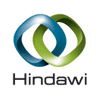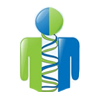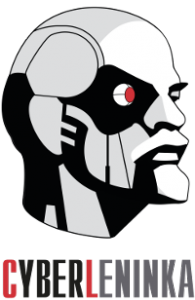Help us protect the commons. Make a tax deductible gift to fund our work. Donate today!
 PLOS
PLOS
PLOS (Public Library of Science) is a nonprofit scientific and medical publishing venture that provides scientists and physicians with high-quality, high-profile journals in which to publish their most important work. Under the open access model, PLOS journals are immediately available online, with no charges for access and no restrictions on subsequent redistribution or use, as long as the author(s) and source are cited, as specified by the Creative Commons Attribution License.
 BioMed Central
BioMed Central
BioMed Central is an STM (Science, Technology and Medicine) publisher which has pioneered the open access publishing model, and was acquired by Springer Verlag in 2008. All original research articles published by BioMed Central are made freely and permanently accessible online immediately upon publication. BioMed Central views open access to research as essential in order to ensure the rapid and efficient communication of research findings.
 Hindawi
Hindawi
Hindawi Publishing Corporation is a commercial publisher of peer-reviewed journals covering a wide range of academic disciplines. Founded in 1997, Hindawi currently employs more than 300 employees and publishes 200+ open access, peer-reviewed journals. In 2007 Hindawi entered into a publishing partnership with SAGE Publications in order to jointly develop a collection of open access journals, which are hosted on the SAGE-Hindawi platform. Hindawi uses the Creative Commons Attribution License.
 Nature Publishing Group
Nature Publishing Group
In December 2007, NPG introduced the Creative Commons Attribution-Non Commercial-Share Alike Unported licence for those articles in Nature journals that are publishing the primary sequence of an organism’s genome for the first time. All articles in NPG’s open-access journals Molecular Systems Biology, Clinical and Translational Gastroenterology, and Cell Death and Disease are published under either a Creative Commons attribution-non commercial-share alike unported licence or a non commercial-no derivativess licence. Articles published at Nature Communications under the open access option are published under the same Creative Commons licences as detailed for Molecular Systems Biology.
 Massachusetts Institute of Technology Libraries
Massachusetts Institute of Technology Libraries
MIT Libraries offers a local version of the Scholar’s Copyright Addendum Engine, created by Creative Commons as a means of simplifying the process of implementing an addendum to retain scholarly rights when publishing.
 PLOS Blogs
PLOS Blogs
PLOS Blogs was set up to bring a select group of independent science and medicine bloggers together with the editors and staff who run the independent network made up of writers who love science and medicine, and scientists and physicians that love to write. Here, you’ll find an equal mix of blogs from journalists and researchers tackling diverse issues in science and medicine. All content is licensed under the Creative Commons Attribution license.
 Science 3.0
Science 3.0
Science 3.0 combines the hypothesis based inquiry of laboratory science with the methods of social science research to understand and improve the use of new human networks made possible by today’s digital connectivity. This website is a community where those interested in the advancement of research can share ideas, tools and build connections. Content is licensed under a Creative Commons Attribution 3.0 Unported License unless otherwise stated on blogs.
 Personal Genome Project
Personal Genome Project
The Personal Genome Project hopes to make personal genome sequencing more affordable, accessible, and useful for humankind. Volunteers make their full sequence genomes, information about their health, and a line of stem cells derived from their bodies available for all research and commercial purposes. CC0 is used to free the data and health information, and our Materials Transfer Agreements keep the lines of stem cells in the commons.
 CyberLeninka
CyberLeninka
CyberLeninka is a nonprofit Russian open access scientific library. The main objectives of the library is to promote science and research activities, public control of the quality of scientific publications, and the development of a modern institute for scientific review and interdisciplinary research. CyberLeninka is going to be the first step to build Russian open science infrastructure. Most of the content is licensed under the Creative Commons Attribution License (CC BY).
Open Access
The Scholars’ Copyright Project
Creative Commons plays an instrumental role in the Open Access movement, which is making scholarly research and journals more widely available on the Web. The world’s largest Open Access publishers in the world all use CC licenses to publish their content online.
We’re also expanding Open Access to research institutions. Creative Commons licenses are directly integrated into institutional repository software platforms like DSpace and ePrints. University libraries at MIT, Johns Hopkins, and Carnegie Mellon offer access to our Scholar’s Copyright Addendum Engine, which helps faculty members upload their research for public use while retaining the rights they want to keep.
We’ve created policy briefings and guidelines to help institutions implement Open Access into their frameworks.
Open Data
At Creative Commons, we believe scientific data should be freely available to everyone. We call this idea Open Data. Creative Commons legal tools can be used to make data and databases freely available. We’ve already had successful implementations in taxonomic, energy, genomics, disease research, geospatial, polar, and bibliometric disciplines, and are providing guidance to funders, institutions, private foundations, governments, the corporate sector, and other stakeholders. Read more about Creative Commons and data.
R&D
The commons doesn’t begin and end with copyrighted works. We think open research materials are vital to innovation, not just data and documents; to that end, we’ve developed and deployed CC-inspired legal tools for transferring biological materials. For example, the Personal Genome Project licensed 1,000 lines of stem cells under CC’s Materials Transfer Agreement, CHDI’s repository of Huntingtons Disease research tools. And we have built a public patent licensing conversation through our involvement in the GreenXchange project.
We have also invested years in researching the realities of re-using open data at web scale through our Neurocommons project, which serves integrated life sciences databases and open-source software essential for re-using data.
Learn more
Visit our science portal on the Creative Commons wiki for more resources about CC and science, and to share your knowledge about open science. Follow what’s new in the world of CC in science via the science section of the CC blog.